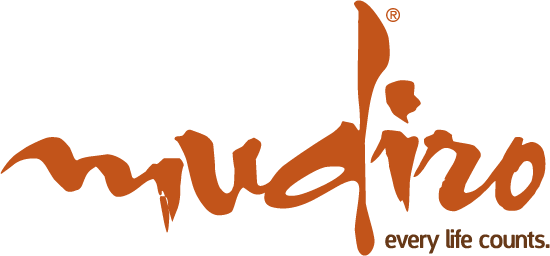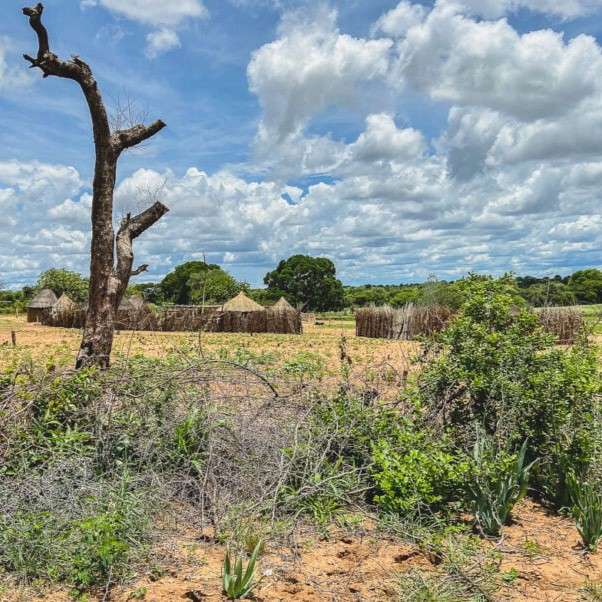xperience report of the fourth stay at Andara Catholic Hospital in Namibia by Dr. med.Christoph König
December 2019 to January 2020
Patience!!!
After a beautiful and exciting camper trip through the north of Namibia with my children (daughter 30, son 27) we are back in Windhoek. The children leave and for me, a new adventure begins. I am very much looking forward to it. First, we take the plane from Windhoek to Rundu in the north of Namibia. From now on, thunderstorms and downpours accompany us. At least in the north, it has rained after four years of drought, to the delight of nature and the population, which is one of the poorest in the world.
Barbara (we know each other well and long) awaits me, as usual with a warm, sympathetic and cordial “Halali Himba” at the airfield of Rundu. This increases my motivation for my work in the Catholic Mission Hospital Andara. Andara is located 180 km east of Rundu deep in the Caprivi tip on the Okavango River. This forms the long border between Angola and Namibia and finally sinks into the Okavango Delta in Botswana.
The car ride with a lot of music, in the way of songs in Afrikans, seems to me like being in a movie. As far as the eye can see, everything is juicy green, the grass high and the landscape characterized by flowering yellow, pink and white flowers. With always impressive driving safety from Barbara, she can do more than three things at the wheel at the same time, we reach our destination in Andara. Ueli, an acquaintance of Barbara, accompanies us. This is how the adventure can begin: “The fourth stay at Andara Catholic Hospital”. For me it is not a jump into the cold water, I already know the conditions.
The religious devotion on Monday morning with all the staff and the chief physician is always impressively mythical and motivates me very much. I will be greeted with applause. Especially the soon to arrive “new” ultrasound with a vaginal probe inspires the doctors and the nursing staff.
Off to work. Many patients are already waiting, especially for me. Language barriers are my big problem. English is the official national language, but many speak Afrikans, which I do not understand. To make matters worse, there are more than 20 dialects in northern Namibia. Fortunately, there are always interpreters. My stay turns out to be a very hard nut this time. Many mainly emotional encounters and sometimes disgusting external circumstances will accompany us all, touch us and pursue us for a long time to come.
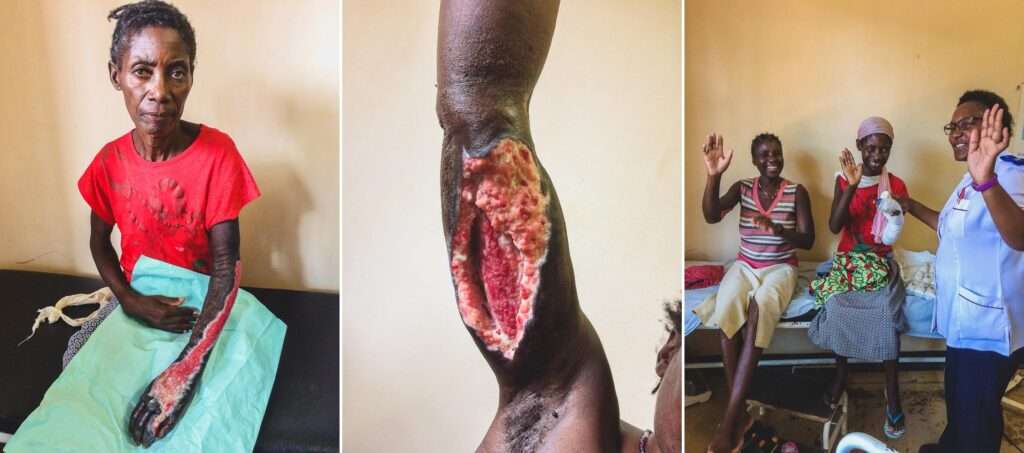
Snakes and snake bites have always interested me. We met them almost every day last year. On the very first day of the department, I meet two women who were bitten by a Spitting Cobra. The venom migrates against the heart in the lymphatic vessels and causes terrible injuries in the form of tissue destruction. The injured women are brave and the nurses who care for the wounds work excellently. The recurring snake bites lead me to buy the book “Snakes and Snakebite in Southern Afrika” by Johan Marais and to deepen me in it. Am I now a snake expert? I also put on a blacklight flashlight to locate the partly toxic fluorescent scorpions.
Almost every morning after the medical report there is training, especially given through me. This is followed by a “bedside teaching” on the patient in the hospital or at the attached polyclinic for four hours. The doctors are trained by me in the handling of the ultra scan. Furthermore, each interesting case is presented to the four doctors and then examined by me. The results of the tests are rather modest for Swiss conditions except for Dr. James (he is the best doctor in the hospital). The question arises as to why this might be the reason. It probably needs more practice but also patience and perseverance on both sides. Patience is the buzzword during this stay anyway. A new x-ray machine funded by the state has been in the hospital for two months. Still wrapped in plastic, one waits for an important component so that the device can be put into operation. Welcome to Africa!!!
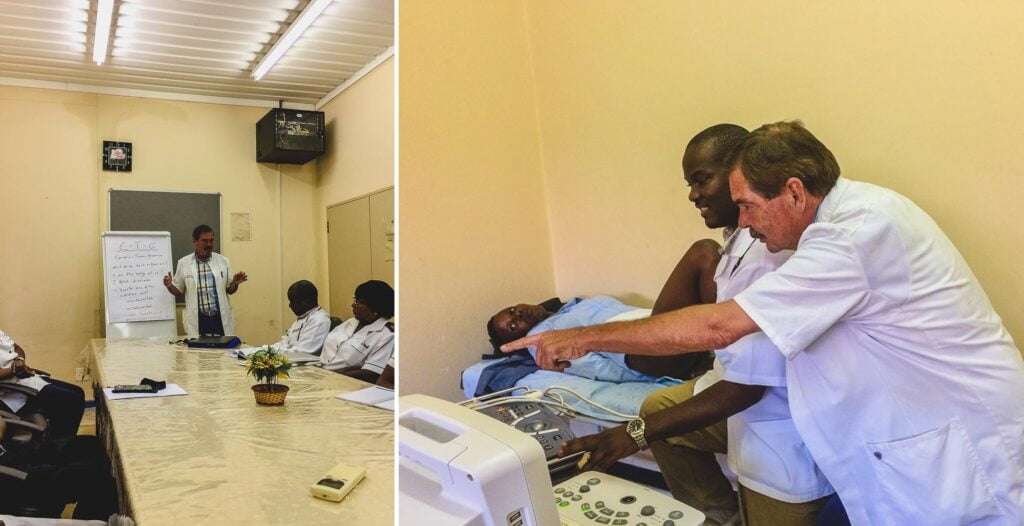
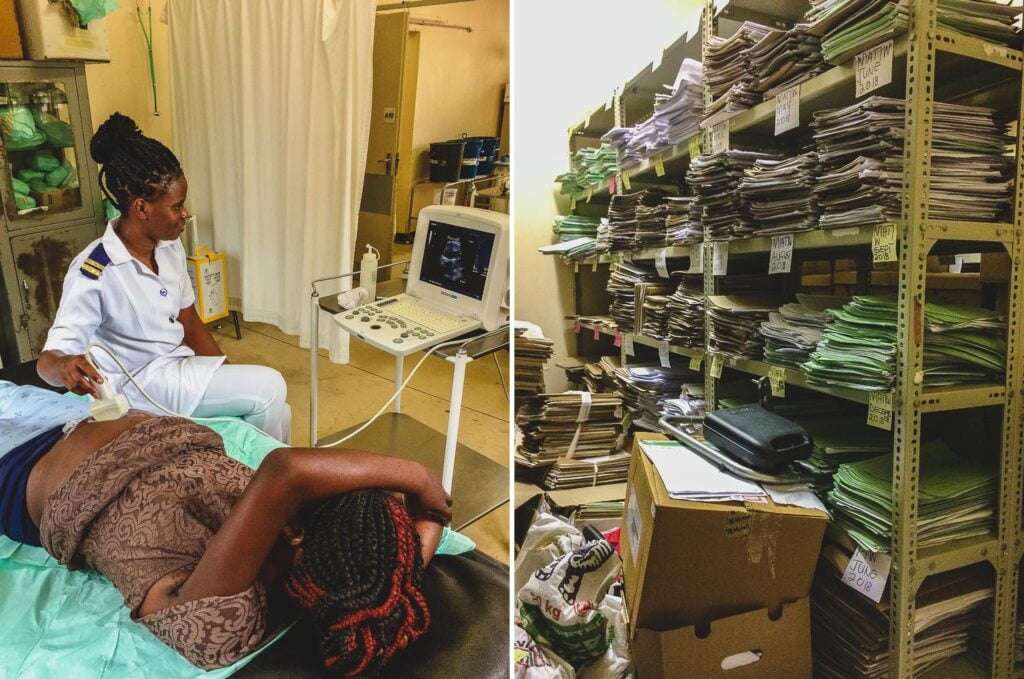
A disaster begins: The main water pump has failed for the entire region. That means – no water! Neither we, the hospital nor the entire population have water. The consequences are very far-reaching. The drinking water, water for sanitary rinsing, hand washing, cooking and the most urgent: no operations can be performed. Nothing is possible anymore. All patients to be operated especially on in the obstetrics department (including emergencies) must be transported by ambulance to the hospital 180 km away. What a great disaster! Fortunately, I do not know what complications have occurred along the transport route. Back as in the 18th century, we hike with the inhabitants to the nearby river, to fetch water. Drinking water is searched in vain. Trump would have declared a state of emergency long ago. We practice patience again. At least our camp and the hospital get water after five long days by means of cistern trolleys because we have water tanks. Drinking water?? We have already become accustomed to the fact that a third of the day there is no electricity available. The hospital has an emergency generator, which starts immediately in case of a power interruption. Despite everything, life here in Africa continues happily and cheerfully. School begins. About 100 students walk past our containers every day at 6.30 a.m. on the way to school, singing and carefree. What a nice wake-up call!
Gregor Guthauser from Switzerland finally arrives. A gifted anaesthetist and friend of mine. The initial idea of operating under normal anesthetic conditions and, above all, performing gynecological operations does not come to anything. The water pump is still not running and there is no clean water available. This condition is expected to last a total of 11 days. Gregor was therefore summoned to the hospital in Rundu, where he can provide more valuable services.
Now I’m alone in the camp. No water (drinking water from 5-liter bottles we had), in the evening often no electricity. This allows for a lot of restful and necessary sleep. During this seven-week stay in Namibia, I enjoy the peace and quiet as always. No mobile telephone -connections, no TV, no newspapers, no news, no Trump or stock market values. And yet the world keeps turning. This is shut down and, despite everything, pure recovery. Hardly imaginable but a dream.
The next emotional disaster is not long in coming. A snake bite patient so close to my heart has left the hospital without saying anything and sound secretly. I am horrified, consternated and sad. Where is she? She will inevitably die of her so far unhealed snake bite wound from sepsis. Is voodoo behind it? They are dangerous, at least from a medical point of view, and can be found everywhere. I can’t sleep anymore. But what should be done? Shall we go to the ambulance? She lives nearby, but proximity is always relative in Africa. Four days later, she suddenly stands back with fresh clothes, a fever, and a festering wound. She survived, a second time. How relieved I am is written in my face. We will continue to care for them. Everyday life returns and I continue to train and am highly self-educated. I don’t know about many illnesses. Once again, I learn that black and white is and must be a symbiosis in all areas! We depend on each other. Claudia Meloni, the doctor of last year I am very missing.
The thermometer measures between 33 and 38 degrees. I love that warmth. There is always soothing and cooling rain in the masses. The grass, meanwhile, is almost 50 cm high. The snakes are well hidden and almost no longer show up. The protruding ribs of the animals have disappeared. A sign that the animals are well-fed and have offspring. We also have offspring in the hospital. About 50 children are born each month. Sometimes my obstetric experience is very valuable. Child mortality is increasing somewhat in these difficult conditions. This is far too high with 5%. Also, the maternal mortality rate is far too high compared to our figures. This has very different causes: bad follow-up, no follow-up, too long journey times to the hospital, etc. All these circumstances cannot be changed. On the other hand, much can be improved in education and training. That is why our presence is both of enormous importance and value. It is also highly appreciated.
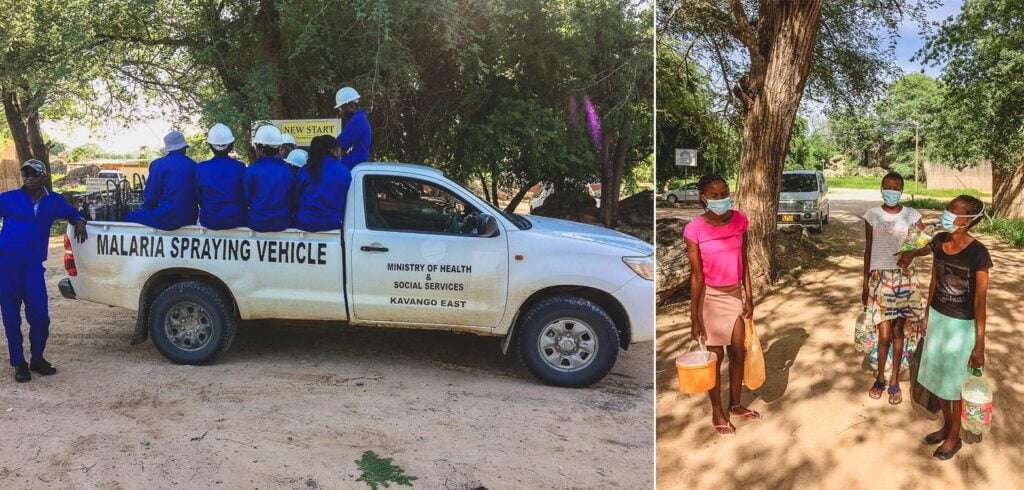

Last year we recorded 15% new cases of malaria. There are fewer cases of malaria at present. This is possibly due to a well -organized malaria spraying program. Bravo Africa! HIV cases are also less common. The infected patients are treated from birth to adulthood thanks to a well-organized program with antiretroviral drugs or other HIV-active substances. The aim is to reduce the concentration of the virus in the blood so far that people with HIV are no longer contagious. Tuberculosis, an inherently curable disease, continues to cause concern. It is the disease with the greatest medical sequelae and the largest cost-causing illness in Africa. This is astonishing because tuberculosis could be cured. The current coronavirus is likely to reach Africa with the greatest degree of damage, but it will not cause any major “damage”. The immune system in Africa is different.
For Barbara and all of us, the few weeks were an incredibly stressful challenge. Barbara was not to blame for this, as were the circumstances. I often felt sorry for her. Well done Barbara and Mudiro. In the realization of our dream, do we one day come closer to training doctors from the Medical Faculty of Namibia in such a way that they become able to provide medical care throughout Namibia and especially the north of Namibia independently? I firmly believe in this, provided that the country remains stable. But it still takes a lot of patience and commitment on the part of the Namibian Medical Faculty and from us, Mudiro. Is patience a strength of Barbara and me? Those of you who know us can confirm that we have them. My stay makes me happy. I like to be for Mudiro in Africa and appreciate the work. One can almost speak of addiction so that one would like to return to Namibia again and again, however, and whenever.
Thank you, once again, dear Barbara and Mudiro for your and your selfless commitment, the commitment without luxury but with modesty, we keep going!! Especially many thanks to all those who support Mudiro with a lot of commitment and financial resources. You too are enthusiasts in your own way with a blazing fire.
Halali Himba!

